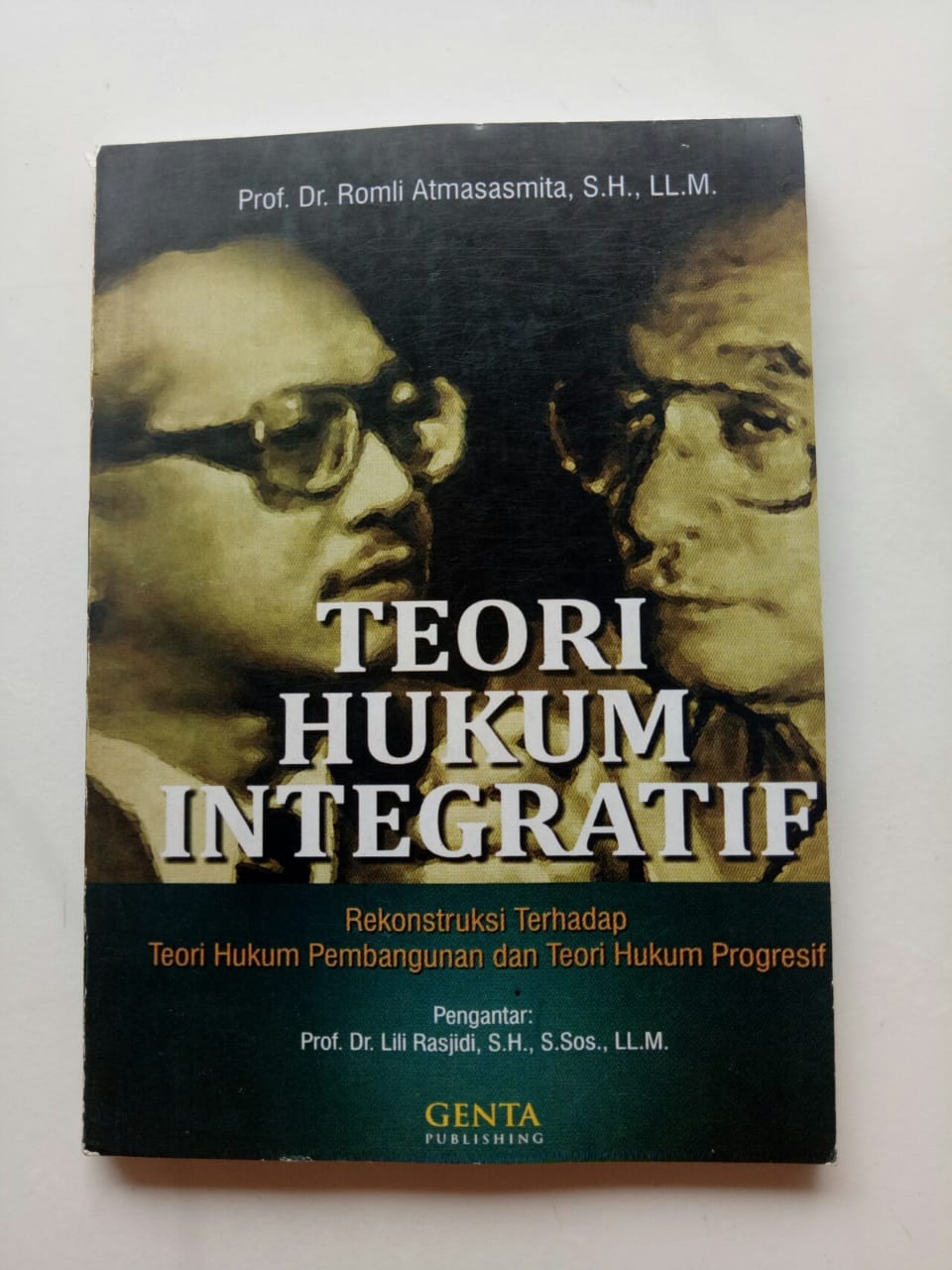Title: Integrative Law Theory, Reconstruction of Development Law Theory
and Progressive Law Theory
Author: Prof. Romli Atmasasmita, SH, LL.M.
Publisher: Genta Publishing
Print edition: March 2018
Pages: 121 + xi pages
ISBN: 978-602-98882-8-5
Karl Popper, a philosopher, suggested that a theory must always be falsified. It means a theory must always be re-examined to seek its weakness, either by the maker of the theory or by other researchers. Popper’s opinion is based on the view that theory always evolves. It means that the new theory comes from old theories that existed before by retaining old concepts that are still relevant and adding new ideas to solve new arising problems. Prof. Romli Atmasasmita has done this for his Integrative Law Theory, which was published through this book. This Integrative Law Theory is a reconstruction of the Development Law Theory presented by Professor Mochtar Kusumaatmadja and Progressive Law Theory delivered by Professor Satjipto Rahardjo.
In the first part of this book, the reader is presented with a re-understanding related to the legal definition. The author wants to make the reader reinterpret the definition of law itself, despite referring to Immanuel Kant’s thinking, that Noch suchen die juristen eine definition zu ihrem begriffe von recht (no legal expert can make a precise definition about the law). Through the beginning of this book, the author also wants to present the legal definitions from various perspectives of legal philosophy, such as naturalism, positivism, sociological-jurisprudence. This section closes with opinions and criticisms from the era of post-modernism.
The second part of this book describes the Theory of Development Law, starting from history, concepts, implementation, to the advantages and disadvantages of this theory. After discussing the Development Law Theory, this book also discusses Progressive Law Theory. After examining the two theories, this book presents Integrative Law Theory as a refinement of the two theories presented by major legal thinkers in Indonesia. According to Mochtar, the law is a norm system, while Satjipto believed that law is as a system of behavior, then this theory complements that law can be interpreted as a value system. According to the Integrative Law Theory, legal engineering, society, and law enforcement carried out must be based on a system of norms, a system of behavior, and a value system which is from Pancasila as the ideology of Indonesia.
The book provides a new paradigm related to the missing link which is often found in legal theories implementation, especially theories originating from the west (western legal theory) has several disadvantages. However, this book is not comprehensive enough as a book that discusses a new theory of legal development in Indonesia. The Colonial Law Theory, which is said to be repressive, is not presented because it is irrelevant. Even though it is irrelevant, we cannot separate the existing legal development without knowing the theory of western law applied in Indonesia, even today there are still Dutch inheritance laws that are applied in Indonesia, such as Burgelijk Wetbook. Furthermore, about 27 pages are presenting the Development Law Theory, while the Progressive Law Theory was only about eight pages. Mathematically, it is unbalanced as the discussion of Progressive Law Theory is not thorough enough. However, despite its shortcomings, this book is a must-read book, so jurists should not only become “legal workers” but also jurists with the character that reflects the values of Indonesia, Pancasila.
Author: Xavier Nugraha





